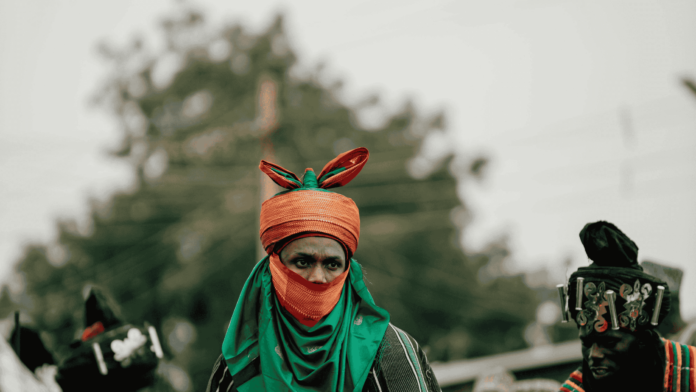Nigeria is a land of unparalleled cultural diversity, where centuries-old traditions come alive through vibrant festivals celebrated across its many regions. From mesmerizing parades and traditional dances to sacred rituals and community gatherings, these festivals provide a window into the heart and soul of the nation. Each celebration offers a unique opportunity to experience Nigeria’s rich heritage, with locals and visitors coming together to honor history, spirituality, and shared joy. If you’re eager to delve into the essence of Nigerian culture, here’s how to make the most of the country’s incredible traditional festivals.
1. Plan Your Visit Around the Festival Calendar
Nigeria is home to hundreds of traditional festivals, each tied to specific dates or seasons. To make the most of your experience, research the festivals in advance and plan your trip accordingly. Some of the most renowned festivals include:
- Eyo Festival (Lagos State): Celebrated by the Yoruba people, this vibrant festival honors departed elders with costumed processions and masquerade displays.
- Durbar Festival (Northern Nigeria): Held after Eid celebrations, it features majestic horse parades, music, and royal pageantry.
- Osun-Osogbo Festival (Osun State): A UNESCO-recognized festival honoring the goddess Osun, celebrated with rituals, dances, and prayers by the Osun River.
- Argungu Fishing Festival (Kebbi State): A four-day event showcasing traditional fishing techniques, canoe races, and cultural displays.
- Calabar Carnival (Cross River State): Known as “Africa’s Biggest Street Party,” this month-long celebration features colorful costumes, parades, and music.
By aligning your travel dates with festival schedules, you’ll ensure you don’t miss out on these spectacular cultural events.
2. Understand the Cultural and Historical Significance
Before attending a festival, take time to learn about its origins and significance. Many Nigerian festivals are rooted in history, religion, or local folklore. For instance:
- The Eyo Festival is a spiritual event linked to Lagos’s historical traditions and the honoring of the deceased.
- The Durbar Festival celebrates the rich Islamic culture of Northern Nigeria, showcasing the emirate’s pride and unity.
- The Osun-Osogbo Festival reflects the deep connection between the Yoruba people and their deities, especially the goddess of fertility and purity.
Understanding the meaning behind the celebrations will help you appreciate the rituals, dances, and ceremonies on a deeper level.
3. Respect Local Customs and Traditions
Traditional festivals are often sacred events, and respecting local customs is essential. Here are some tips to ensure you’re a welcomed participant:
- Dress Appropriately: Wear modest clothing or follow local dressing norms. In some cases, you may be encouraged to wear traditional attire to blend in with the celebratory spirit.
- Ask Before Taking Photos: Always seek permission before taking pictures, especially of religious ceremonies or traditional leaders.
- Follow Festival Etiquette: Some areas may have restricted access or require you to observe in silence. Listen to local guides or elders for instructions.
- Avoid Interrupting Rituals: Many festivals have spiritual components that require focus and reverence. Be respectful of these moments.
4. Participate Actively in the Celebrations
One of the best ways to experience Nigerian festivals is by actively engaging in the activities. Join the dancing, taste the local food, and interact with the community. For instance:
- At the Argungu Fishing Festival, you can cheer for participants or even join in the canoe races.
- During the Calabar Carnival, you can don a costume and join the parade for a truly immersive experience.
- At the Osun-Osogbo Festival, walk alongside worshippers to the sacred grove and witness the rituals by the river.
Engaging with the community not only enhances your experience but also helps build meaningful connections.
5. Savor the Local Cuisine
Food is a central part of Nigerian festivals, and each event offers a unique culinary experience. Be sure to try the traditional dishes prepared during the celebrations. For example:
- At the Durbar Festival, you might enjoy spiced grilled meat (suya) and rice dishes.
- The Argungu Fishing Festival features fresh fish dishes, often cooked on-site in traditional styles.
- During the Calabar Carnival, savor the flavors of Efik cuisine, such as afang soup and edikang ikong.
Sampling the local cuisine adds a delicious dimension to your festival experience.
6. Capture the Moments
While living in the moment is important, capturing memories of these vibrant celebrations can help you relive the experience. Bring a camera or smartphone to document the colorful costumes, dances, and rituals. However, be mindful of:
- Lighting: Many festivals feature nighttime activities, so ensure your equipment is suited for low-light photography.
- Permission: As mentioned earlier, always ask before taking pictures of people or sacred activities.
- Storage: Bring extra memory cards or power banks to avoid running out of space or battery.
7. Hire a Local Guide
A local guide can enhance your festival experience by providing insights, translating local languages, and helping you navigate the festivities. They can also introduce you to hidden aspects of the festival that you might miss on your own, such as behind-the-scenes preparations or lesser-known rituals.
8. Support Local Artisans and Vendors
Many festivals feature markets where artisans sell traditional crafts, textiles, and souvenirs. By purchasing items like beaded jewelry, woven baskets, or locally made garments, you not only take home a piece of the festival but also support the community’s economy.
9. Be Open to New Experiences
Nigerian festivals are rich with unexpected surprises, from spontaneous dance performances to impromptu storytelling sessions. Keep an open mind and embrace the spontaneity that often characterizes these events. This openness will allow you to fully appreciate the vibrant energy and communal spirit of Nigerian festivals.
10. Prioritize Safety
While Nigerian festivals are generally safe, it’s important to stay vigilant:
- Stay with the Crowd: Stick to populated areas to avoid getting lost.
- Travel in Groups: If possible, attend festivals with friends, family, or a local guide.
- Keep Valuables Secure: Use a crossbody bag or secure pocket for your belongings.
Experiencing Nigeria’s traditional festivals is a journey into the heart of the country’s rich culture and heritage. From the vibrant colors of the Eyo Festival to the regal displays of the Durbar Festival, each celebration offers a unique glimpse into the traditions of Nigeria’s diverse communities. By planning ahead, respecting local customs, and immersing yourself in the festivities, you can make the most of these unforgettable cultural experiences. Whether you’re a first-time visitor or a seasoned traveler, Nigeria’s festivals promise memories that will last a lifetime.




